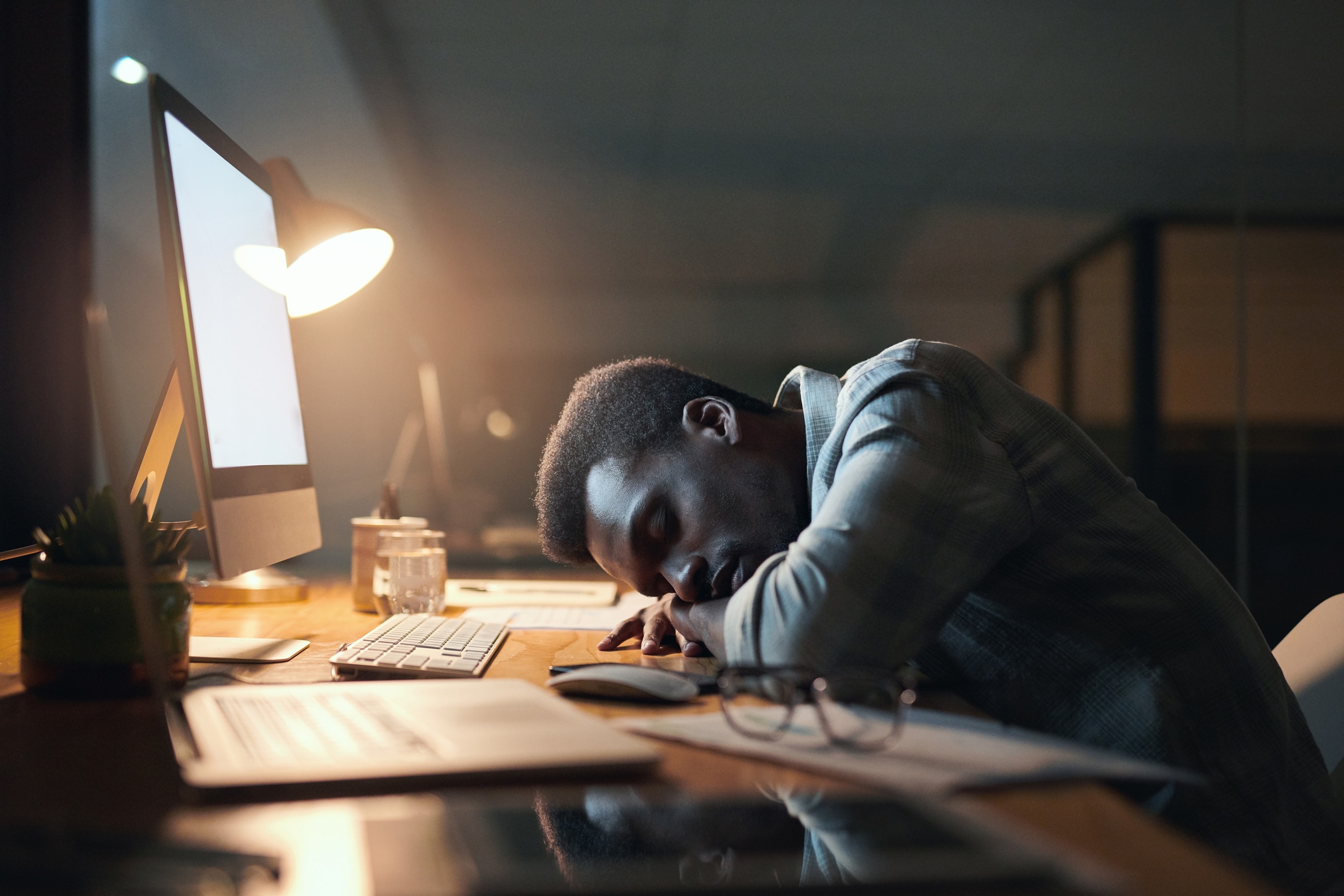How’s this for irony? Slack, whose workplace messaging app has at some point prompted many employees to feel the tug of responding after hours, has a warning: People who feel obligated to work after hours also tend to be less productive.
New survey data from Slack’s Workplace Lab, which queried some 10,000 desk-based employees, found that people who log off at the end of the work day reported 20% higher productivity scores than those who feel the pressure to work after hours. Unsurprisingly, those who felt the need to log on after hours reported twice the work-related stress and burnout levels as their unplugged peers. (Those who chose to work late by choice, meanwhile, whether for scheduling reasons or because of personal ambitions, reported no downsides.)
The survey results—a continuation of Slack’s Future Forum research, which was widely cited throughout the pandemic—comes at the end of a year when many CEOs, all in the name of greater productivity, have been pushing a do-more-with-less mentality and return-to-office mandates that have many workers frustrated by workplace distractions and longer hours spent commuting. But in effect, such efforts could be making productivity worse.
“The conventional wisdom for productivity has always been if you want to produce more, just work more,” says Christina Janzer, senior vice president of research and analytics and the head of Slack’s Workforce Lab, which does research and experiments about improving ways of working. “This is our opportunity to myth-bust. More hours don’t necessarily mean better productivity.”
Janzer admits that while Slack has do-not-disturb settings, status updates and scheduled send tools, “there’s still more work for us to do to encourage them and make them more visible.” Still, it’s ultimately “up to the company and the team and the culture to really establish those ground rules,” she says.
Slack’s survey comes from self-reported answers rather than specific measures of study participants’ productivity or their number of work hours. It found that those who felt obligated to work after hours were 50% more likely to say they have too many competing priorities than those who work traditional hours; meanwhile, employees who worked longer hours reported similar daytime efficiency to those who worked a typical schedule, suggesting managers aren’t doing enough to prioritize work and prevent a sense of overload, Janzer says. For many organizations, the latest data shows “there’s a really big opportunity for managers to play a bigger role in helping people prioritize and take the time that they spend at work and make it time well spent,” says Janzer.
The survey also found that desk workers reported a “goldilocks zone” of four hours a day as an ideal amount of time for focused work, and that more than two hours of meetings is the point at which they feel overburdened. Meanwhile, half of desk workers surveyed said they rarely or never take breaks during the work day.
The survey’s finding about long hours and productivity is hardly new. Academic research has long shown that beyond a certain point, extra hours can lead to productivity declines. A 2014 study, for instance, found that employee output falls sharply after a 50-hour work-week, and then falls precipitously after 55 hours. A Boston University study of consultants, meanwhile, found that managers couldn’t tell the difference between those who actually worked 80 hours a week and those who pretended to do so. Then there’s research from the World Health Organization, which concludes that working 55 or more hours per week is associated with an estimated 35% higher risk of a stroke and a 17% higher risk of dying from heart disease.
Yet at a time when hybrid work arrangements and an influx of technology allows people to rethink the patterns and practices of work, it’s a reminder that there are alternatives to simply pushing longer hours to get more out of people. “Productivity is not linear,” says Janzer, noting that 75% of survey respondents said they experience a productivity slump in the afternoons between 3 and 6 pm. “There’s these opportunities to really think about how people are spending and structuring their day.”
Slack’s survey also found that those who reported the most productivity were more likely to say they used time management strategies like blocking time for specific tasks, only checking email at specific times and setting timers to keep themselves focused. Slack is experimenting with some productivity tools itself: Recently, Janzer’s team had a “speedy meetings week” where it halved the length of all meetings—all 30-minute slots were scheduled for 15, for instance—to see how much time was really required. The company also has “maker weeks” twice each quarter, in which meetings are temporarily lifted from the calendar to rethink which ones work and which don’t.
“It’s a great forcing function,” Janzer says. “You’re able to really accomplish a lot from a productivity standpoint. But the second thing is it forces you to work in different ways. What you thought had to be a 30-minute meeting you realize actually [could] be an asynchronous post in Slack.” Or, as many have noted, an email.
